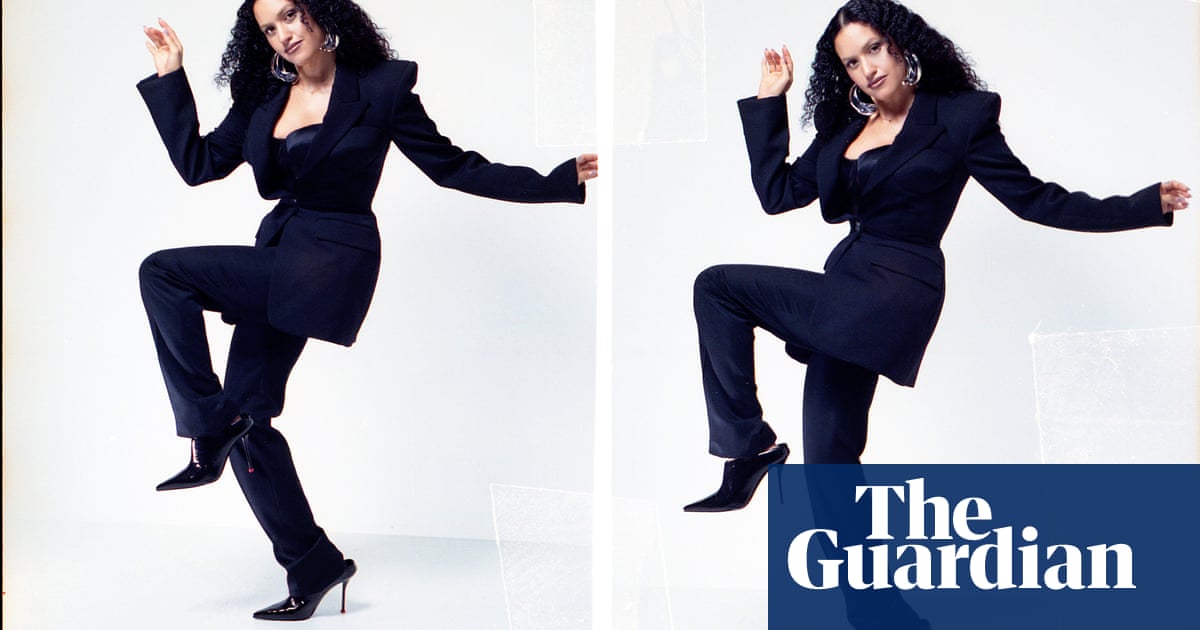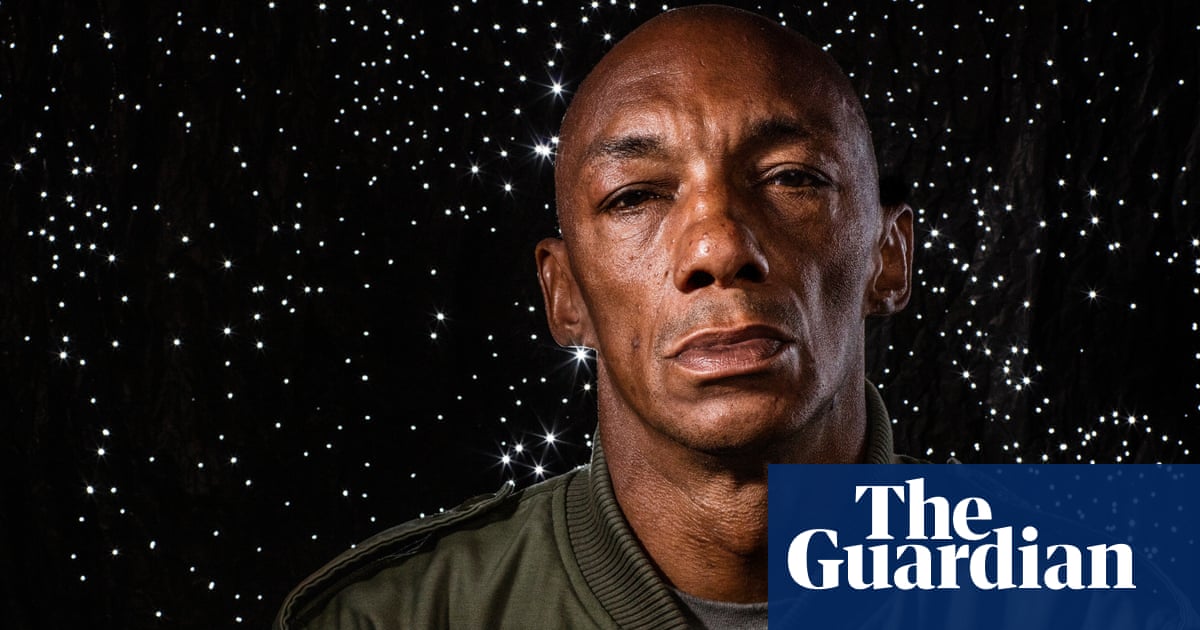
The one and only Chita Rivera answers the phone at her home in New York, but she sounds an early warning: we could be joined at any moment by a third party. That would be Dolores, the hell-raising alter ego of the 90-year-old Broadway megastar, who makes a series of arresting interventions in Rivera’s new memoir. “It’s Chita right now,” she says with a sly chuckle. “But Dolores could pop in at any second.”
Dolores, Rivera’s birth name, is what her mother called her whenever she caused trouble. When Rivera was in rehearsals for West Side Story in 1957, she began to use the D-word to distinguish her gutsy, unpredictable side, in contrast to the usual strait-laced nature that led Chicago lyricist Fred Ebb to dub her “Miss Dove”.
Rivera was rehearsing a number in which her character Anita – whose brother has just been killed in a gang rumble – tells her pal Maria to stick with the Sharks and stay away from the Jets. But the song wasn’t landing. The directorial assistant, Gerald Freedman, told Rivera to imagine her own siblings had been slain. “And Dolores,” she recalls, “defiantly sang the song with my brothers in mind.” In the decades that followed, this side of her would rise up repeatedly. Without Dolores, she says, her career simply “wouldn’t have been as dramatic”.
In Chita: A Memoir, Rivera reveals that the holy theatre of Sunday mass almost led her to become a nun instead. “I was brought up in a very Catholic household,” she says. “I was quite comfortable looking forward to being a nun. Most young Catholic girls have that feeling. But then I went and fell through the coffee table and my mother put me in ballet school.”
To explain: Broadway has a broken piece of bamboo furniture to thank for the glittering career of one of its greatest “triple-threat” entertainers (one who excels at singing, acting and dancing). As a child, Rivera would bounce off the walls of the family’s Washington DC home. When she crashed through the table, aged nine, her exasperated mother decided ballet would be a way to burn some energy and learn a little discipline.
Rivera’s childhood was clouded by the death of her father when she was seven, but it was full, too, of mischief with her siblings. “You learn how to defend yourself when you’re one of five, you know? You want to survive – and survive joyfully. There’s nothing better than a good laugh.” At school she was a class clown: “I was sneaky – I would do anything for a laugh.” Comedy is part of what drew her to musical theatre. She successfully auditioned for George Balanchine’s School of American Ballet but, after a couple of years, broke from the corps of ballerinas. “I would have had to be just like everybody else. I wasn’t about to do that.”
This desire led to a career not on screen but on stage, with its nightly thrill of unpredictability – a place where “what happens, happens. And when mistakes happen, you have to make it believable.” She is bemused by the very idea that a film is shot out of sequence. “You can do the end before you do the beginning!” she marvels. “I take my hat off to them.”
Rivera’s movie appearances are scarce but include a prison-cell cameo, sucking on a cigarette, in the Oscar-winning 2002 version of Chicago, the musical she launched on Broadway in 1975. Rivera originated the role of ruthless vaudevillian Velma Kelly, whose husband had it comin’ – to quote the Cell Block Tango – when she found him in bed with her sister. Dubbed “the merry murderess”, Velma is jailed for their shooting.
The part was pure Dolores and the team was to die for: choreography and direction by Bob Fosse, plus music by John Kander and lyrics by Ebb, the duo who later gave her such memorable songs in The Rink, Kiss of the Spider-Woman and The Visit. But Chicago’s rehearsals were derailed when Fosse had a heart attack. While they waited for him to recover, Kander and Ebb suggested creating a separate nightclub act for Rivera to perform. She was initially reluctant. “I said, ‘Oh no I can’t do that – I’d have to stand up and be myself and I don’t know who I am!’” But the club act became a hit and got her into the role of Velma, not least because it was the first place All That Jazz was heard. She would return with the act, and various accompanists, for many years.
When Chicago was revived in London in the 1990s, Rivera rocked up to play Velma’s opposite number, Roxie, the role originated by her great friend Gwen Verdon. “She gave me the confidence to be brave enough to be myself, whoever I was,” she remembers. I ask what she learned from other performers, such as Sammy Davis Jr, with whom she had a relationship. “I learned that you give absolutely everything and that you’re wide open when you’re out there – open to anything that may come your way. He was the most giving performer I have ever come across. He gave his heart to the audience. I learned not to hold back from Sammy.”
In 1956, the pair starred together in Mr Wonderful, which gave Rivera one of her first character roles on Broadway. She had started out performing as Conchita del Rivero but shortened this after being told it was too long for posters. Chita Rivera was snappy, melodious and “still recognised my family background” she reasons in her memoir, adding that if it sounded “too south of the border” for anyone, then “that was their problem”.
For a while, she had toyed with Chita O’Hara, as her mother had Scottish and Irish blood. Her father was born in Puerto Rico and, as Anita in West Side Story, Rivera felt a kinship with her fellow Sharks. She was one of the few in the cast with Puerto Rican heritage, she says. Her offstage romance with co-star Tony Mordente, one of the Jets, was complicated by choreographer Jerome Robbins’ order that the actors playing Sharks and Jets shouldn’t socialise, to make their onstage confrontations more tense. The pair married and had a “Shark-Jet daughter”, Lisa, who eventually played Anita herself in a production in Florida, choreographed by Mordente years after the couple’s divorce. “It was most important that she make it her own,” Rivera recalls with pride, “and that’s what she did.”
When Rivera turned 90 this year, Lisa threw her a big party. Rivera recalls arriving at the restaurant: “There was the number of my birthday – you’ll notice I haven’t said it – and it was so big there was no way I could get around it. If it hadn’t been my daughter, I’d probably have said, ‘Take that down!’ I’m still in shock.” Mother and daughter sometimes perform together – including a forthcoming gig with Rivera’s piano, bass and drums trio.
When Rivera’s mother died in 1983, the stage provided a sanctuary. On the day she got the news, she still performed in a matinee. “It is a very safe space,” she explains. “You have the family, which is the cast; you have the background of the story; you’re giving to the audience and you’re receiving from them.”
She speaks lovingly of the rituals of theatre. Does she have any backstage routines? “The only time my door would close would be just before I went on and I said my prayers. I would say the Our Father, the Hail Mary and the Act of Contrition. Then I’d go off to be crazy!” An altar was kept in her dressing room and fellow actors would hand over their photos to place on it for her prayers. “My prayer was always, ‘Let me say the right words, let me please the audience, let me do a good show.’”
Rivera has made her life on the stage but what are her other passions? “Sumo wrestling,” she replies swiftly. “Yeah! I love sumo wrestling!” When she took a musical to Japan in the 1980s, she fell “head over heels” for the wrestlers. “I love the bigness, the formality. My publicity agent and myself, years ago, introduced some sumos over here and one was looking for a suit. He got the pants and he put her in one leg and me in the other.” She giggles, then segues into talking about her favourite leading man. “It’s Boris Karloff – but as the monster in Frankenstein. I’m crazy for Frankenstein.”
Crazy, in fact, for all things Halloween-ish. She has even spotted trick-or-treaters wearing Anita’s purple dress from West Side Story, which aficionados know to match with just one earring (Rivera’s own suggestion for the character – because “Anita’s a bit of a pirate”). “When they wear that dress and they have that one earring on, I give them the OK. It’s all about the detail!”
As we talk, Rivera starts to scare up some plans for trick-or-treaters this year. “I would have a casket out there, skeletons, tombstones. I’m looking out my window now and seeing what space I have.” There is dark laughter down the line: “I love scaring people.” Dolores seems to have finally emerged, just before our time runs out. “Oh, that is Dolores,” she heartily agrees. “She’s the devil.”
Chita: A Memoir by Chita Rivera with Patrick Pacheco is published by HarperOne in the UK on 8 June












